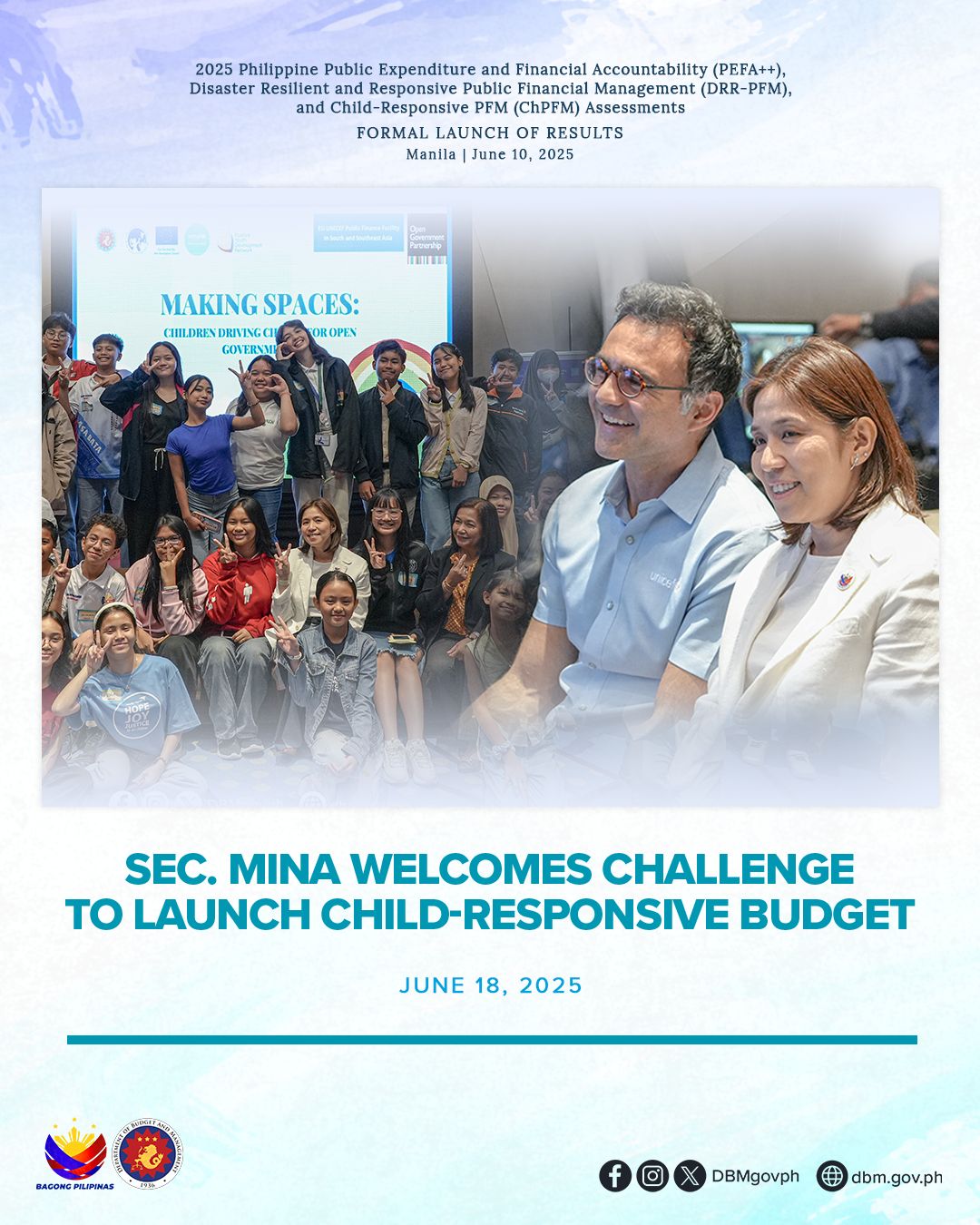
Public Financial Management (PFM) Committee Principals’ Chairperson and Department of Budget and Management (DBM) Secretary Amenah F. Pangandaman welcomed the results of the first-ever Child-Responsive PFM (ChPFM) Assessment, recommending child-focused allocations in the national budget.
The ChPFM Assessment Report was launched alongside the results of the Public Expenditure and Financial Accountability (PEFA) Assessments on June 10, 2025.
For the first time, the PEFA++ assessment was extended to include child-responsive PFM systems, covering budgetary and public policy issues on the rights of women, men, and young people, including children.
“[The ChPFM Assessment Report] provides the baseline data on the emerging child-focused budgeting at the national level and the integration of children’s welfare at all stages of our PFM,” the Budget Chief said.
The report showed that the foundational elements of a child-responsive PFM are emerging at the national level, as children-related priorities are reflected in national budget documents, and social sector agencies monitor outcome and impact indicators related to children.
Pioneering voice
During an earlier meeting of PFM Committee Principals held on April 22, 2025, United Nations Children’s Fund (UNICEF) Philippines Country Representative Behzad Noubary lauded the Philippine Government as it is poised to become “a pioneering voice in the global movement to institutionalize child-responsive PFM.”
“We see potential value in establishing a National Child Policy Framework similar to the existing gender-responsive budgeting,” the UNICEF Country Representative added, noting how it will better integrate children’s needs in fiscal planning.
During the official launch of the PEFA Assessment Reports, Noubary also joined the panel discussion with other development partners, where he highlighted the critical role of ChPFM in advancing human capital development, particularly by investing in early childhood years.
Child-responsive public financing
To further integrate child-responsive public financing in the country, the report recommended that the Philippines implement a policy to institutionalize structures and systems for child-focused budgeting. This includes child-impact analysis, or the assessment of the impact and effectiveness of child-related programs in addressing children’s needs.
As part of the efforts to determine the needs of future leaders and nation-builders, Sec. Mina earlier joined children aged 10 to 15 years old in an intergenerational dialogue hosted by the DBM together with UNICEF during the Open Government Week 2025. The event provided a platform for children and youth to voice their concerns and share their aspirations for the kind of future they hope to inherit.
Under Sec. Mina’s leadership, the DBM also partnered with the European Union (EU) and the UNICEF for the establishment of a Public Finance Facility (PFF) that will make public budgets better address children’s needs. It also aims to develop a budget tagging tool and further involve children in policy dialogues.
Download the ChPFM Assessment Report: https://www.dbm.gov.ph/index.php/pefa-drr-pfm-and-child-responsive-pfm-assessment-reports
END

